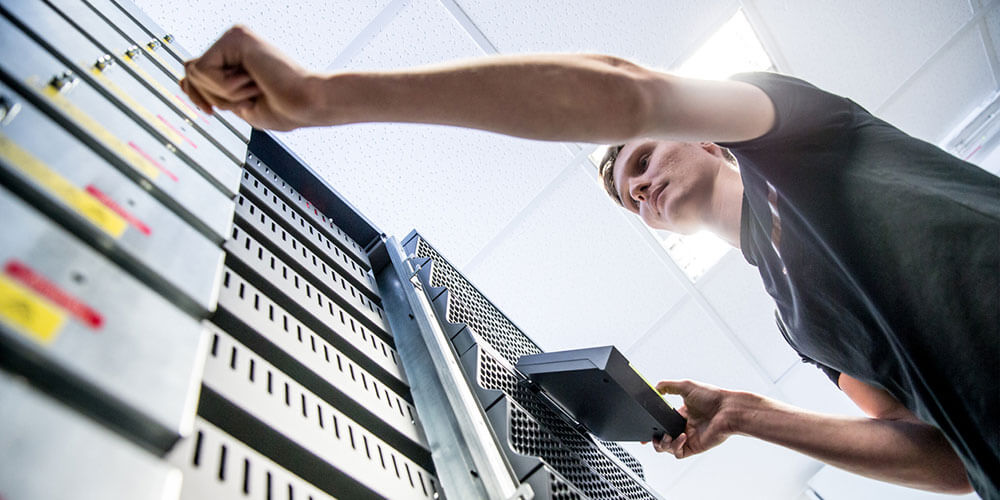Power is a critical aspect of any industry, and understanding the different types of power is essential. The two most common forms of electrical power are Alternating Current (AC) and Direct Current (DC). While AC power is widely used, DC power is gaining prominence in various industries.
What is DC Power?
DC (direct current) power is a type of electrical power that flows in one direction only. Unlike AC (alternating current) power, which periodically reverses direction, DC power maintains a constant direction. DC power can be generated by rectifiers, batteries, fuel cells, and solar panels.
Does Either AC or DC Power Offer More Advantages Over the Other?
The answer to this question lies in the specific application. AC power is efficient for long-distance power transmission and inductive heating. However, DC power is safer, more cost-effective for short distances, and it eliminates the need for complex transformers. DC power is also more reliable and efficient for devices that use high-voltage power, such as electric vehicles and computer servers.
How is AC Power Generated?
AC power is generated by the utility companies and distributed through transmission lines and distribution systems. The generators at the electrical power plants are rotated by turbines through a process that uses fossil fuels, nuclear energy, wind or hydraulic energy to produce AC power. The rotating magnetic fields produce the alternating current that flows in the wires.
How is DC Power Generated?
DC power can be generated through various sources, including solar cells, fuel cells, and rectifiers. Solar cells convert sunlight directly into electricity, and fuel cells generate power through a chemical reaction. Rectifiers are used to convert AC power into DC power. DC power has the advantage of being more efficient than AC power, as fewer transformation losses occur during transmission.
What are Some Common Industries That Utilize DC Power?
Various industries use DC power, including telecommunications, transportation, and data centers. Unlike AC power, DC power systems are easy to expand and have an efficient power source. DC power distribution is ideal for small or remote systems, such as cell phone towers or satellite systems, where AC power may not be as practical.
What Components are Included in DC Power Systems?
DC power systems typically consist of four components: rectifiers, backup battery systems, DC distribution centers, and the power plant controller, also known as a CPU. Rectifiers transform AC power into DC power, backup battery systems ensure system stability and store energy, DC distribution centers distribute power, and monitor and control the entire system. The system's configuration can vary based on application size and energy demands, and there are many options for customizing and expanding DC power systems to fit specific business needs.
I Have Heard the Term Scalability Cited as One of the Key Benefits When Discussing DC Power Systems. Can You Elaborate on That?
Scalability refers to the ability of a system to adjust its capacity to meet changing demands. DC power systems are scalable because they can be distributed at various points in the power grid, reducing the need for long-distance transmission of electricity. This feature enables flexible utilization of renewable energy sources, such as solar panels and wind turbines. DC power systems can also save on infrastructure costs by minimizing the need for extra cabling and electrical components.
Is DC Power a Good Solution for My Application?
Before deciding on DC power, consider the application's unique needs and limitations, as well as the budget. A thorough analysis of the application requirements, goals, and constraints is essential to make the right choice. DC power may not be the best solution for all industries and situations. For example, AC power may be more efficient for large power needs in a densely populated area. Conversely, DC power may be the perfect solution for critical application requiring uninterruptable power as well as remote or small devices that need long battery life or run on low energy devices.
Do All Electrical Contractors Have the Experience and Knowledge to Install, Maintain and Modify DC Power Systems?
Not all electrical contractors have the expertise required for DC power systems. These systems require unique knowledge of electrical codes, voltage levels, and specialized components. DC power systems often use high voltages, which carry greater electrical hazards, so it's crucial to have professionals that can ensure safe operation and maintenance. It's essential to hire a contractor who has proven experience and certifications in working with DC power systems.
Does ANS Have the Experience and Knowledge To Engineer And Develop a DC Power Plan for My Application?
ANS has proven experience and certifications in DC power systems. Our team of experts can work with you to determine the most effective DC power solutions for your needs. We have a deep understanding of the electrical codes and safety standards associated with DC power systems and can ensure safe installation, maintenance, and modification of your system.
In conclusion, DC power is a viable and sustainable option for various industries. It offers superior efficiency, versatility, and safety than traditional AC power systems. It's easily scalable and customizable, making it an ideal solution for small devices, remote locations, and data centers. However, like any power system, DC power has its limitations, and proper analysis and planning are essential to ensure the best solution for your business. At ANS, we have extensive experience in designing and implementing DC power systems, plus our team of experts can guide you through the detailed process of analyzing your business needs and selecting the best power system for your needs.
About the Author
Carl is a distinguished professional with over 34 years of experience in the electrical and telecommunications industries. He started his career working as an electrical apprentice and worked his way up to Master Electrician. Carl was the owner and operator of C.J. Electrical Contracting Inc., from 1997 to 2022. Under his leadership as CEO C.J. Electrical Contracting Inc. specialized in delivering E, F & I (engineering, furnishing, and installation) services to the telecommunications sector.
Carl's achievements include establishing C.J. Electrical Contracting Inc. as an approved DC Power vendor for Verizon Communications. His pivotal role extended to critical site restoration projects, notably contributing to the recovery of the West Street Central Office following the 9-11 terrorist attacks, the Belle Harbor Central Office after Hurricane Irene, and the Scarsdale Central Office post-Hurricane Ida flooding.
In addition, Carl holds several Master Electrician licenses in and around the NYC Metropolitan area, showcasing his dedication to professional development and expertise in the field.
An avid fisherman and accomplished ice hockey player, he currently serves as Vice President of AC Electrical Programs at ANS Advanced Network Services.
For inquiries or further information, please feel free to reach out to Carl at sales@anscorporate.com or on his cell phone at (800) 268-0397.




